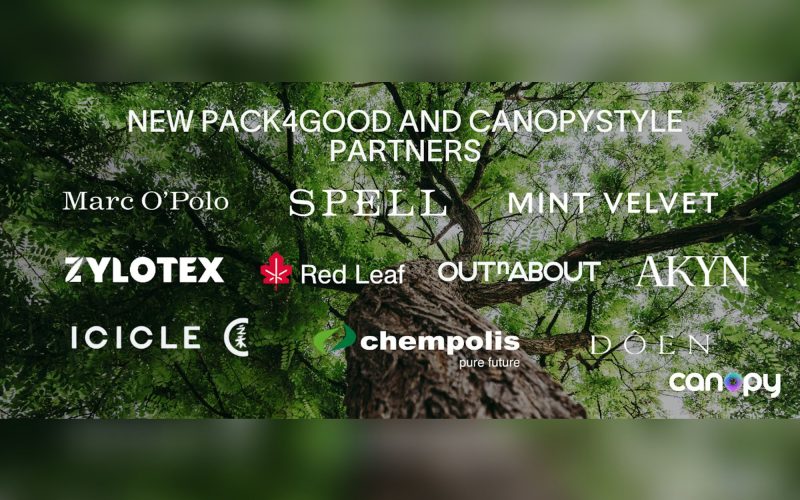Environmental non-profit Canopy has announced that eight fashion and lifestyle companies — Marc O’Polo, Victoria’s Secret & Co., Akyn, Mint Velvet, Spell, OUTnABOUT, DÔEN and ICICLE — have signed up to its Pack4Good and CanopyStyle initiatives. The new members join a growing collective of brands working to eliminate the use of ancient and endangered forests in paper packaging and man-made cellulosic fibre (MMCF) supply chains, such as rayon and viscose. Next-generation material innovators Red Leaf, Zylotex and Chempolis have also joined the network.
The announcement comes amid surging global demand for paper packaging and MMCF textiles. Canopy estimates that more than 3.1 billion trees are cut down annually for paper packaging alone, with many sourced from the world’s remaining ancient and endangered forests.
Susanne Schwenger, Chief Product Officer at Marc O’Polo SE, said joining the initiatives aligns with the brand’s ambition to advance its sustainability mission. “By working to eliminate Ancient and Endangered Forests from our packaging and textile supply chains and accelerating the shift to Next Gen fibres, we can help safeguard climate-critical forests while building a more resilient, responsible future for fashion,” she said.
Canopy’s founder and executive director, Nicole Rycroft, said the companies reflect a global shift towards embedding circularity and forest protection into mainstream business practice. “Implementing their commitments will help keep the world’s forests standing, accelerate the scaling of Next Gen Solutions, and demonstrate that style and sustainability go hand in hand,” she added.
The new additions bring CanopyStyle’s network to 590 brands with more than US$2 trillion in combined annual revenue, while Pack4Good now has 480 partners with collective revenues of US$403 billion.
AKYN founder Amy Powney said their design philosophy is “deeply rooted in nature”, making forest protection a natural extension of the brand’s values.
Chempolis CEO Heli Antila said the partnership will help scale biorefining technologies that reduce emissions and replace fossil alternatives.
Canopy said the companies’ commitments will help reduce pressure on climate-critical forests, support global biodiversity goals and strengthen supply chain resilience through the adoption of next-generation materials.





















